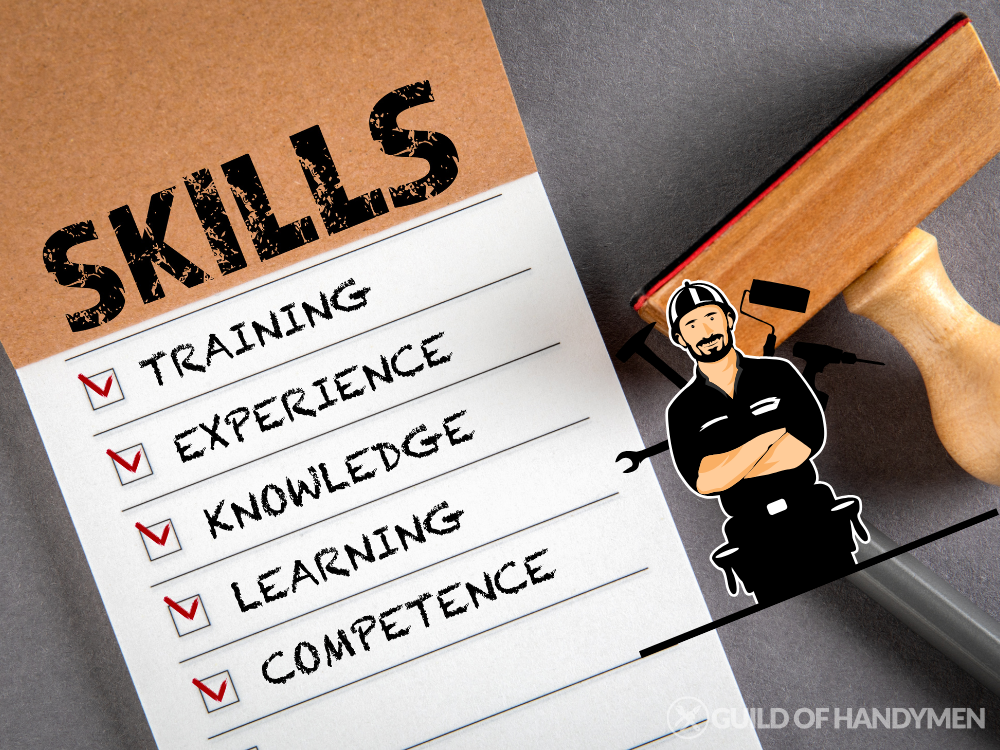Finding the right handyman for your project can be tricky, especially if you’re not familiar with the skills different tradesmen offer. Hiring someone with the proper expertise not only saves time and money but ensures a quality finish that lasts. In this guide, we’ll break down common handyman jobs and the skill sets required, making it easier for you to choose the right professional.
This blog is part of our series on how to hire a reliable handyman – sharing everything you need to know to get the best handyman for your needs.
Why Matching Skills to Projects Matters
Before you book a handyman, it’s worth understanding why this step is so important. Mismatched skills often lead to poor workmanship, delayed timelines, or even increased costs if things go wrong and need redoing. By choosing someone whose expertise aligns with your project, you get peace of mind and a job done well.
The Risks of Hiring the Wrong Person
- Quality Issues: A carpenter taking on a plumbing job might not deliver the same level of quality as an experienced plumber.
- Cost Implications: Correcting a poorly executed task can be expensive.
- Wasted Time: Missteps often mean more time spent fixing things, disrupting your plans.
With that in mind, let’s dive into some common handyman categories and the kinds of jobs they specialise in.
Key Handyman Specialisations

Handymen can have a wide range of skills, but often they specialise in certain types of work. Here’s a look at common job categories and the corresponding expertise to look for.
1. General Repairs and Maintenance
These handymen are jacks-of-all-trades, ideal for basic fixes around the home. Their skills often include:
- Wall Repairs: Fixing small holes or cracks in plasterboard.
- Furniture Assembly: Building flat-pack furniture and doing minor repairs to tables, chairs, and shelving.
- Fixture Replacements: Changing out doorknobs, lightbulbs, or basic taps.
When to Hire: Go for a general handyman if you need simple, quick jobs done. They’re cost-effective for everyday maintenance.
2. Carpentry Work
Carpentry specialists are best for projects involving woodwork, construction, or installation. Their expertise might cover:
- Cabinet Making: Custom cabinets or repairs to existing units.
- Flooring: Laying down hardwood, laminate, or engineered wood flooring.
- Shelving & Storage: Creating fitted shelves or storage solutions.
When to Hire: If your project involves cutting, shaping, or constructing wood structures, a carpenter is your best bet.
3. Plumbing and Electrical Jobs
Plumbing and electrical work require specialists who are qualified and, in many cases, certified to carry out tasks safely and legally. Examples include:
- Plumbing: Fixing leaks, installing new sinks, or replacing toilets.
- Electrical: Installing new light fixtures, outlets, or rewiring small sections of your home.
When to Hire: Only hire licensed professionals for complex plumbing or electrical tasks to avoid safety risks.
Matching Skills to Specific Projects
Now that we’ve covered some common categories, here’s a deeper look at how to match a handyman’s skills to your specific needs.
Minor Household Fixes
For jobs like tightening loose screws, fixing squeaky doors, or patching minor wall damage, a general handyman is perfect. They’ll have the basic tools and knowledge to tackle these tasks efficiently.
Renovation Projects
If you’re planning a larger renovation, such as redoing a kitchen or bathroom, you’ll want a team of specialists. This will often include a plumber, an electrician, and a carpenter. A handyman with project management experience can help coordinate this, but each specialist will bring the expertise needed for their part.
Outdoor Work
From fence repairs to gutter cleaning, outdoor specialists or landscape handymen are what you need. Some are adept at decking or even minor masonry work, so check their experience before booking.
How to Assess a Handyman’s Skillset

Knowing what to look for in a handyman can be as important as understanding the skills needed for the job. Here are some tips:
- Ask for References: Genuine handymen will be happy to provide feedback from previous clients.
- Check Certifications: For electrical and plumbing work, certifications are a must.
- Review Past Projects: Look for examples of similar jobs they’ve done before.
- Discuss the Details: Explain your project thoroughly to see how they respond. A good handyman will ask detailed questions.
Making the Right Choice
Finding the right handyman comes down to matching your needs with their skills. Be specific about what you want done and don’t hesitate to ask questions before hiring. A little preparation upfront goes a long way in ensuring a smooth and successful project.
Key Takeaways
- General handymen are great for everyday fixes, but specialists are needed for complex projects.
- Always hire certified professionals for plumbing and electrical tasks to avoid safety and legal issues.
- Checking references and past projects helps ensure you’ve picked the right person for the job.
Understanding these basics will put you in a great position to hire the right expertise, keeping your home repairs and renovations stress-free. Happy fixing!

